Is aquarium water good for plants? Aquariums are a great way to bring nature into your home, but did you know that there are many benefits to having an aquarium? Let’s look at some of the best reasons for keeping an aquarium and some tips on how to choose one.
If you’re an aquarium enthusiast, or are thinking of becoming one, you might be wondering if the water from your fish tank is good for plants.
Aquarium water is best used directly in an aquarium, but there are a few other options available should you want to reuse your tank water on your plants.
Today we are going to look at the numerous benefits of using freshwater aquarium water for your plants. It’s true that most plants require different levels of pH and nutrients when compared to the human body.
The water in your aquarium has the nutrients, minerals, and trace elements that your plants need to grow. Most fish lovers have an aquarium full of beautiful, exotic fish. which plants like fish water?
Like the fish, the aquarium is also a living creature and needs to be nurtured and cared for. The water inside the tank needs to be kept clean and free from pungent odors. A dirty tank also has a negative impact on plant growth.
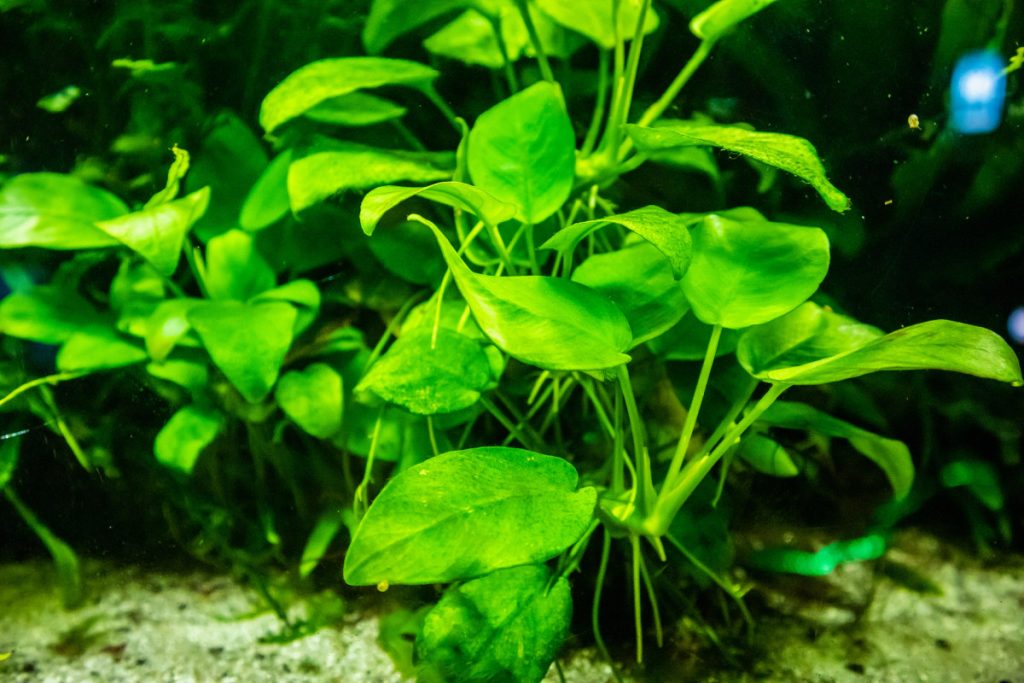
Is aquarium water good for plants?
Aquarium water is actually very good for plants. Plant roots absorb nutrients from the water, which contains many of the same minerals and chemicals that plants need to grow.
Some people believe that aquarium water can cause plant leaves to turn yellow or brown, but this is not true. Instead, it’s more likely that something in your aquarium isn’t working properly (for example, if your filter hasn’t been cleaned in a while).
In fact, using aquarium water on houseplants is an easy way to help them thrive! Just mix 2 tablespoons of salt into 1 gallon of distilled or purified drinking water (don’t use tap water).
You should do this once every three weeks during the spring and summer months when temperatures are at least 65 degrees Fahrenheit outside.
If you have indoor plants that seem to be struggling, try adding aquarium water to their soil. This can help them grow more quickly and thrive in a variety of environments.
If you decide not to use aquarium water on houseplants, consider purchasing organic plant fertilizer at your local gardening store or online.
If you do want to use aquarium water on houseplants, make sure that the fish in your aquarium are not diseased before adding it!
It’s also a good idea to check with your local water utility first, as many cities and counties have guidelines about using other people’s water. How to use aquarium water for plants?
Points to keep in mind
- What is aquarium water?
- Do aquarium waters contain nutrients?
- Can you use aquarium water on your houseplants?
- Will my plants get diseases from using this water?
- What Makes Aquarium Water Good for Plants?
- The best types of plants for aquariums
- How often should you change your aquarium water?
- Benefits of changing your aquarium’s water
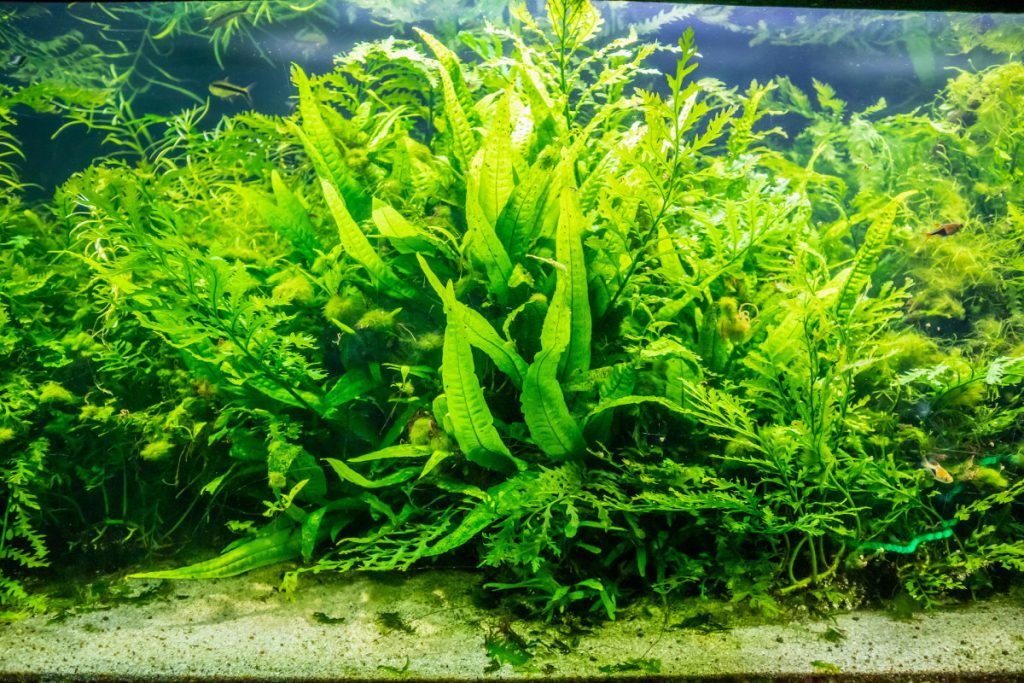
1. What is aquarium water?
Aquarium water is simply the water used in aquariums for fish. It is a mixture of tap water and salt. The reason why it is not pure water or mineral-free water is because it has been purified and treated for use. That’s what makes it aquarium water!
The salt that’s added to this mixture helps keep the pH stable, which means that there won’t be any fluctuations in acidity, making the environment ideal for your fishy friends (or foes).
The names given to these mixtures vary depending on where you live, but they’re all essentially the same:
They contain minerals and salts that are beneficial to fish that live in freshwater environments like lakes or ponds rather than salty seas, as we humans do. This is because fish need the right balance of minerals and salts in order to survive.
If you were to put a fish into pure water, it would die quickly because there would be no way for it to maintain its body’s internal chemistry! That’s why aquarium water has been specially formulated.
2. Is aquarium water filled with nutrients?
Aquarium water is not filled with nutrients. Aquarium water is just water. Whether you’re a plant enthusiast or an aquarium owner, it’s important to understand that the water in your tank is not going to provide plants with any additional nutrients.
In fact, aquariums are made to take nutrients out of the environment and replace them with CO2 and O2. This is good for fish but could be bad for plants.
While this may seem like bad news at first glance, there are still reasons why you should use aquarium water when watering your plants:
- It’s clean and free of bacteria.
- It has no chlorine or other chemical additives.
It comes from a reliable source. It’s easy to access. If you have aquarium-keeping experience and are looking for ways to re-use the water in your tank, you may want to consider adding it to your plant care routine.
Aquarium water is the perfect solution for plants that require clean, distilled water. It’s also ideal for plants that need to be watered regularly but don’t like being over-watered.
For example, if you have an African violet or another type of succulent plant that requires regular watering but cannot be allowed to dry out completely, aquarium water may be just what you need!
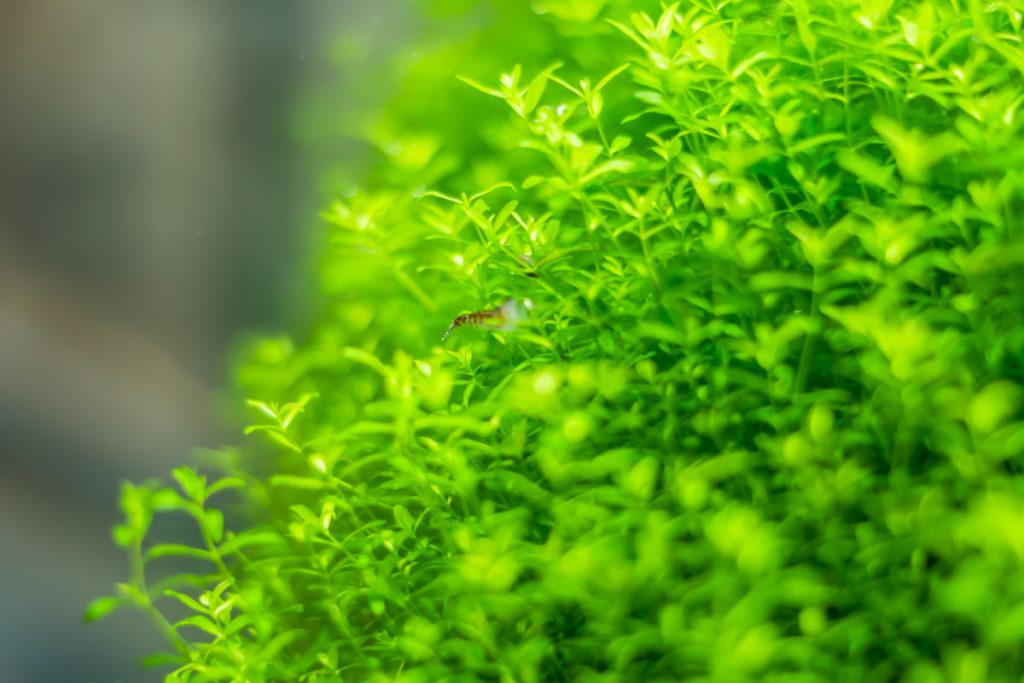
3. Can you use aquarium water on your houseplants?
Aquarium water is safe for houseplants and can be used to water them. Aquarium water has a lot of nutrients, which makes it good for your plants. There are many reasons why you should use aquarium water in your home garden:
- It’s free!
- It’s easy to get All you need is an aquarium big enough to hold all the fish in your tank (or enough fish) and a pump that will deliver the right amount of oxygenation through the water in order not to suffocate them all (or kill them). And if they’re too noisy, well, goodbye, little friends!
The only problem with aquarium water is that it might contain chemicals and other things that are not good for plants. You can use one of two methods to remove these chemicals:
Use a filter to filter out the impurities in your aquarium water before using it on your plants. This is probably the easiest way to clean your aquarium water.
Let the water sit overnight. After you collect your aquarium water, let it sit overnight so that any chemicals in it have time to dissipate into the air around them.
If you do use aquarium water on your plants, it’s a good idea to keep an eye on them. Watch how they grow over time and look for signs of stress or damage.
If you notice problems with your plants, discontinue using aquarium water immediately. If you want to use aquarium water, it’s best to let it sit overnight so that any chemicals in it have time to dissipate into the air around them.
If you do use aquarium water on your plants, keep an eye on them. Watch how they grow over time and look for signs of stress or damage.
4. Will my plants get diseases from using this water?
You might have heard that aquarium water is safe to use on your houseplants, but this isn’t always true. There are two main reasons why this could be a problem:
The water may contain bacteria or parasites. While these organisms can make your plants sick in the short term, their main danger lies in infecting other plants with disease.
If you use aquarium water on a plant that isn’t a tropical variety and then share it with another plant, you could spread infections between them.
Aquariums are filled with nutrients like nitrogen and phosphorus (which promote growth), iron (which helps maintain healthy leaves), potassium (which helps build strong cell walls), and magnesium (which improves root health).
These nutrients can be good for houseplants—but only if they’re used carefully! If you add too much fertilizer at once, your plant won’t absorb any of it properly because its roots aren’t used to receiving so many nutrients at once.
plus the roots may grow too fast, which makes them weaker overall.
If you want to use aquarium water on your houseplants, it’s best to dilute it before applying it. You can also use the fertilizer in a separate bottle so that you can control how much is given and when.
If you’re going to use the water from aquariums on your plants, it’s important to know how much fertilizer is already in it.
If the tank has been running for a while, there will be plenty of nutrients available, so adding more isn’t necessary unless they’ve been used up.
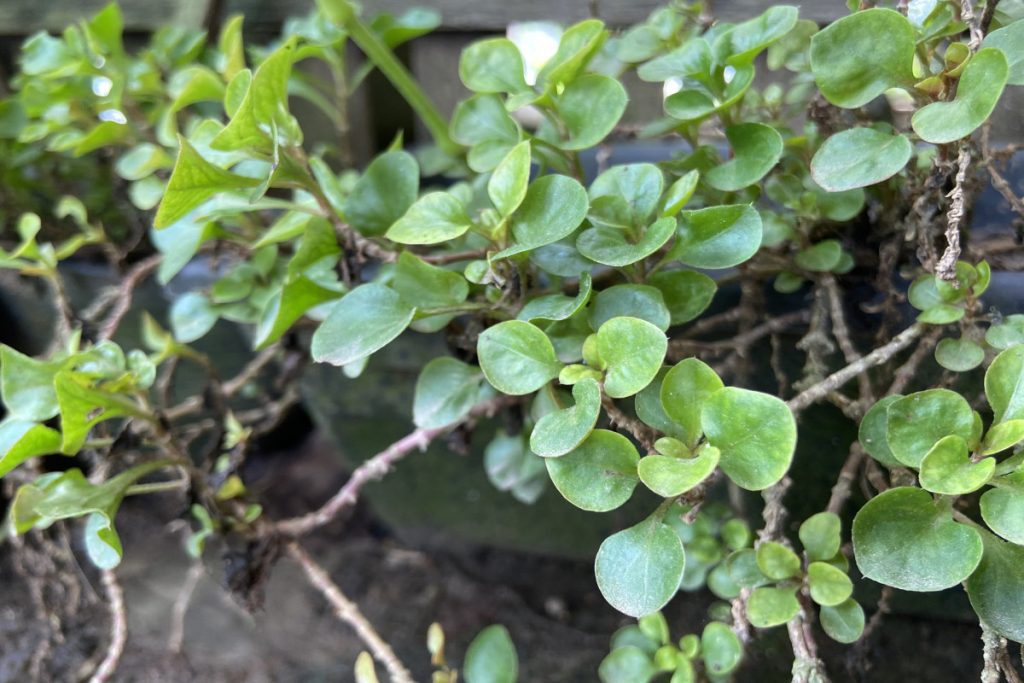
5. What Makes Aquarium Water Good for Plants?
The first thing that makes aquarium water good for plants is that it’s rich in nutrients. Aquariums are closed systems, meaning nothing can get into or out of the tank.
And because they’re so enclosed, no matter how many fish you have, there will be waste products produced by your fish and other creatures living in the tank. These wastes are converted by bacteria into nutrients that plants need to grow.
The second reason aquarium water is beneficial to plants is because it doesn’t contain chemicals like chlorine or fluoride—these tend to kill off beneficial organisms living inside the water, including algae-eating snails that help keep the pH level balanced (more on this later).
The third reason why aquariums make great growing environments is because they’re clean and free of debris like leaves or twigs floating around; these things could damage delicate roots if they come into contact with them!
The fourth thing that makes aquaponic gardens so appealing for indoor gardening is their excellent pH level, which is ideally between 6 and 7 on average.
This makes them extremely easy-to-maintain as well as less prone to algae blooms than saltwater tanks since there’s practically no carbon dioxide buildup due to their low alkalinity values.
6. The best plants for aquariums
Aquariums are great for growing plants. They provide the right conditions for plant growth and can be used as part of a beautiful decor in your home.
There are some types of aquariums that will work well with plants, but others will not be able to support them at all. This article is going to break down what you need to know about which aquariums work best with plants.
How to properly care for your plants in an aquarium, and where to find some great online resources to help keep your tanks healthy and thriving!
There are many different types of aquariums available, but they can be separated into two main categories: those that have a solid glass or acrylic bottom and those with an open design.
Open-top tanks are not great for growing plants because there is no way to control the humidity levels inside the tank. But if you have a closed-top tank with air holes, then it should work well with plants!
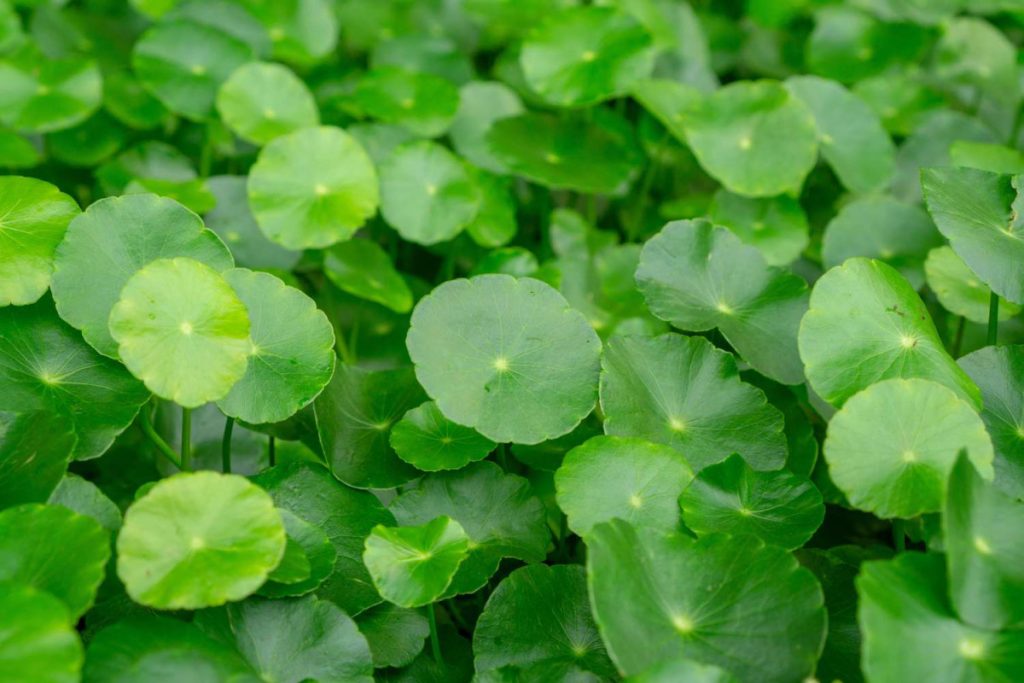
7. How often should you change your aquarium water?
It depends on what kind of fish you have. If you have freshwater fish, you should change 25% to 50% of your tank’s water every week. If you have saltwater fish, they need a more thorough cleaning regime.
You should change up to 90% of the water in their tanks every week or two (depending on how fast it evaporates).
What makes this question so tricky is that some people think changing too much water will kill off the good bacteria in their aquariums, while others think they need more than half out at once because it’s been too long since they last changed anything at all!
We’ll discuss both sides and let you decide which camp seems most reasonable for your situation before we move onto our next answer…
How often should I change my aquarium’s water? This is a question that every fish owner has asked themselves at one time or another.
While some may say you should change as little as possible and others will say it’s important to keep up with the maintenance of your tank, most people fall somewhere in between these two extremes.
8. Benefits of changing your aquarium water
A healthy aquarium will have a pH balance between 7.0 and 8.0, with an ideal of 7.2. If the pH is too low, your fish may be in danger of dying; if it’s too high, this can lead to algae growth and ammonia poisoning.
When you change the water in your aquarium on a regular basis, you get rid of toxins and keep the pH level stable, which keeps fish from getting sick.
As far as how often you need to do this, it depends on what type of fish you’re keeping, but generally speaking, it’s good practice to change 25% of your tank’s water every week or so.
In addition to helping maintain your tank’s pH levels, regular water changes will also keep the water clean and clear. This is especially important if you have fish that prefer murky waters (like koi), as well as for filtering out debris from your tank’s filter system.
If you’re looking to keep any type of fish in your tank, it’s important to make sure that the water is clean and clear. You can do this by performing regular water changes (which also help maintain a stable pH balance) as well as cleaning out debris from your filter system on a regular basis.
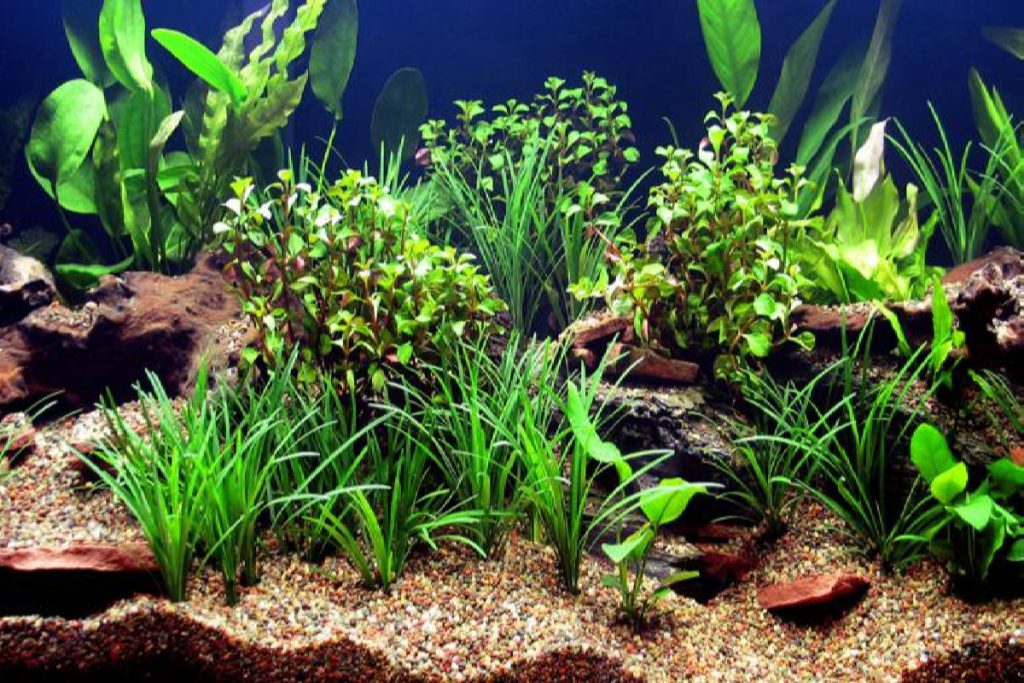
FAQ
1. Is it OK to water plants with fish tank water?
If you have a large aquarium and a couple of plants, then yes, you can use the aquarium water to water your plants without the need to ever fertilize them.
2. How often should you use aquarium water for plants?
Depending on the tank’s size, contents, filter and other factors, water changes may be needed monthly, weekly or several times a week.
3. Do plants like aquarium water?
In short, using aquarium water to irrigate plants is a very good idea, with one major caveat.
4. Is fish waste water good for plants?
The waste is toxic to the fish but is a rich fertilizer for the plants.
Final thought
In conclusion, aquarium water is not just good for your fish. It can also be beneficial to your plants if you choose the right type and change it regularly.
However, before deciding whether or not to use aquarium water on your houseplants, do some research on them first!
If you are looking for a more environmentally friendly alternative like rainwater or potting soil, then check out our article on How Much Rainwater Should You Collect in Your Garden?
Read more articles: Is Aquarium Salt Safe for Snails?

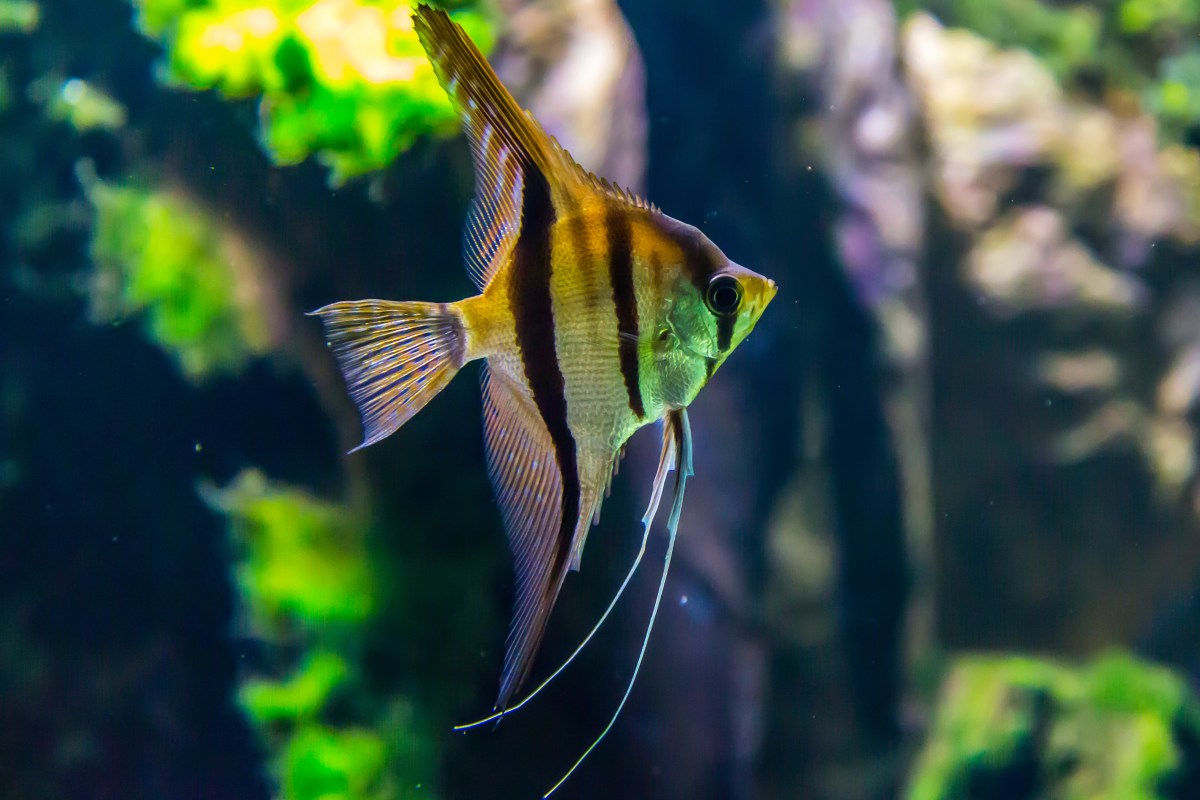
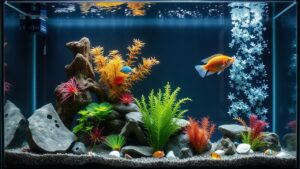
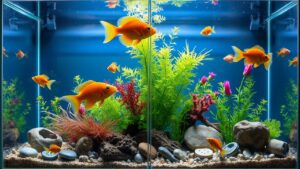
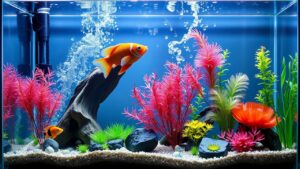
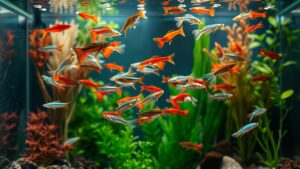
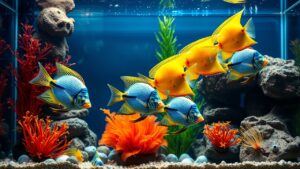
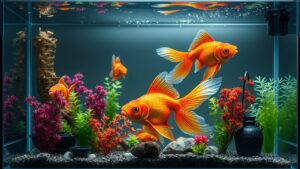
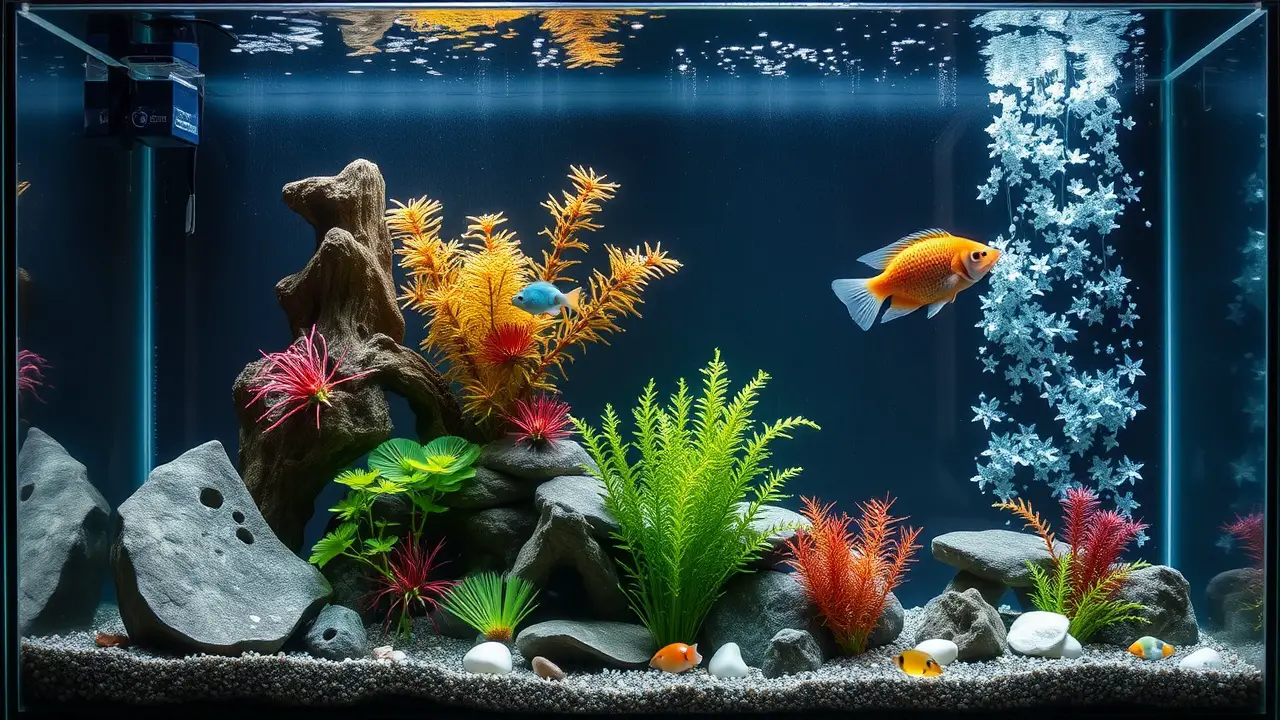
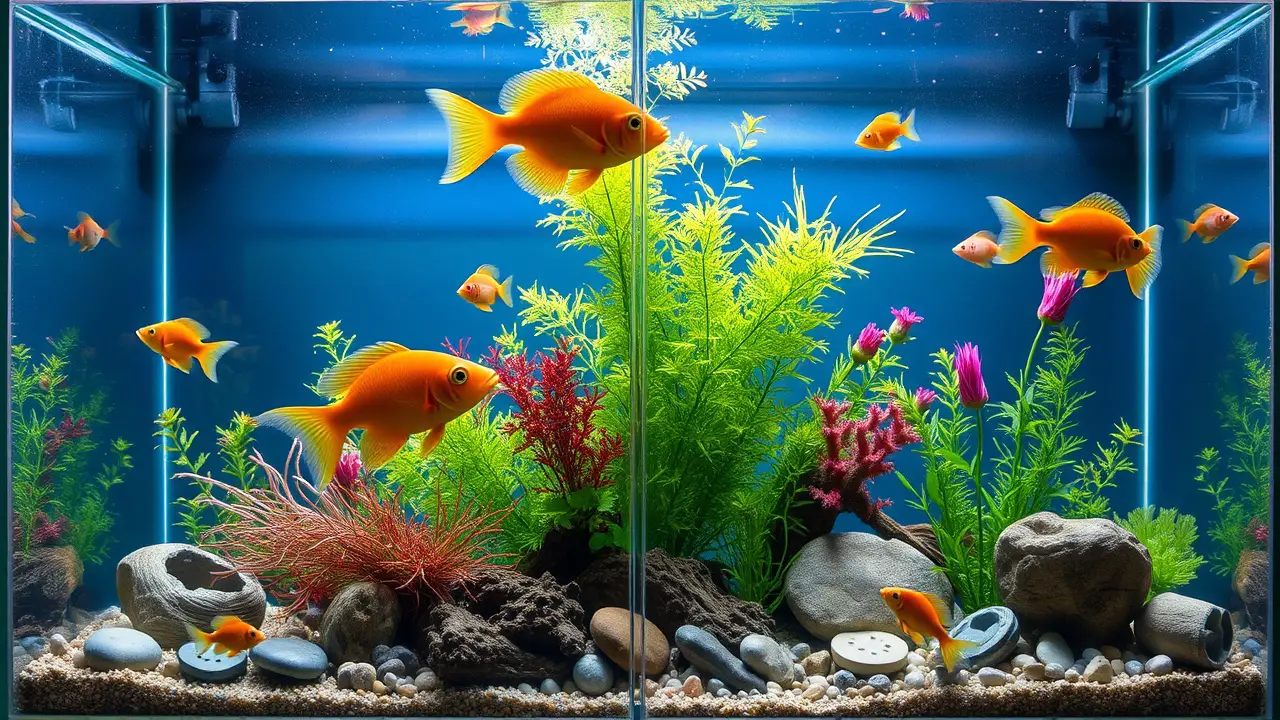
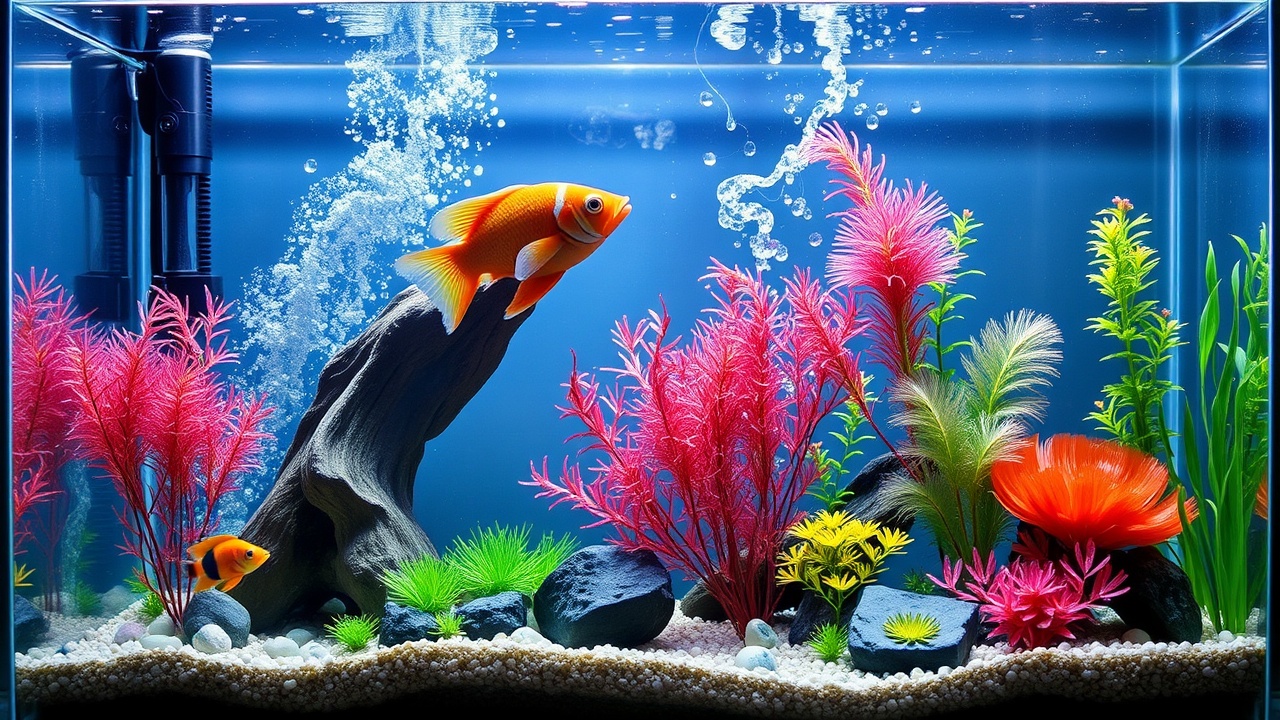
Leave a Reply